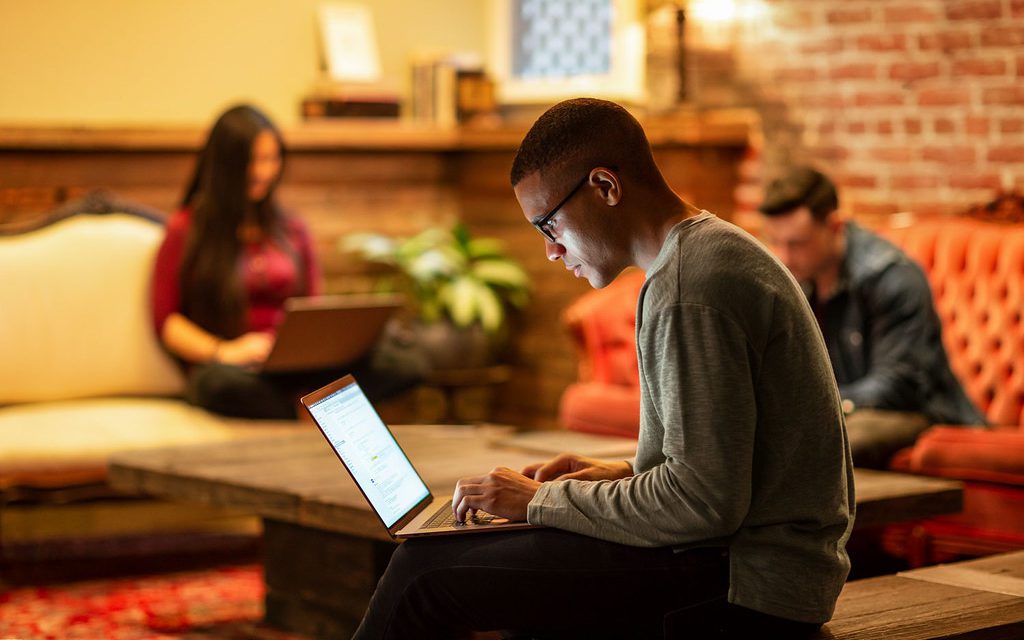 With remote working now the norm for many, the concept of travel has evolved. Beyond conventional air travel, a new era of intelligent travel prioritises sustainability and innovative alternatives.
With remote working now the norm for many, the concept of travel has evolved. Beyond conventional air travel, a new era of intelligent travel prioritises sustainability and innovative alternatives.
In response, businesses and working professionals have begun to prioritise smart travel alternatives and consider new ways to reach their desired destinations. It’s increasingly clear that smart travel doesn’t just reduce the carbon footprint associated with business travel; it can support employees by enhancing work satisfaction and productivity.
Rethinking Travel in the Remote Work Era.
The shift to remote working has prompted professionals to rethink their travel habits. Instead of jetting off to meet business clients for a few hours halfway across the world, many workers choose technological alternatives.
In particular, video conferencing allows businesses to meet with clients and colleagues without travelling. This is a more efficient and cost-effective way to do business (especially with the rise of faster and cheaper broadband), and it is also much better for the environment.
And while inevitably, business travel fell by up to 90% during the Covid-19 pandemic, according to Deloitte Insights, there is little sign of it returning to pre-pandemic levels soon. “Brands hoping for a business travel ‘return to normal’ will not see one,” concludes a recent Morning Consult report. “Overall, the share of US adults who say they travel for business is now 18 percentage points lower than in a typical pre-pandemic year.”
Nor is the rise of video conferencing technologies such as Zoom, Microsoft Teams and Google Meet the only factor behind declining business travel. A 2021 Morning Consult Survey found that nearly four in 10 American business travellers would never go on another work trip again.
Corporate belt-tightening in the face of a cost-of-living crisis also means fewer travel opportunities than before the pandemic. Last summer, the corporate expense platform Ramp found that American companies were cutting their trip budgets by about 25%.
The Rise of Alternative Travel Options.
But it’s not all bad news for the business travel industry. With many older workers having retired, a new generation of ‘digital nomads’ has entered the workplace, choosing blended travel – combining business and leisure activities. Many are also opting for more sustainable forms of travel, driven by a desire to be eco-conscious. Brands also support this shift through online marketplaces that connect to sustainable travel options such as electric fleets and e-bikes.
Train Journeys for Work and Leisure.
Travelling by train offers a comfortable and more sustainable alternative to air travel. Not only is there generally more room to work at a table than on a plane, but it’s also possible to charge devices using the plugs provided and stay in touch constantly via mobile phone without putting it in aeroplane mode. Most trains have WiFi onboard, or the mobile phone can be used as a cellular hotspot for connecting a laptop and other devices. Typically, trains have a more generous baggage allowance, meaning it is possible to take more work gadgets on board if required.
Cruise Ships as Remote Work Hubs.
Trains aren’t the only places where it’s possible to work, either. Cruise ships are rapidly becoming floating workspaces, catering to a new breed of onboard professional who wants to blend work and vacation – or a ‘workation’. While internet speeds onboard cruise ships used to be painfully slow, many companies, such as Royal Caribbean, now have SpaceX’s Starlink on board some of their cruise ships for high-speed connectivity via satellite.
Reducing Environmental Impact.
Key to both working and travelling sustainably is to reduce carbon footprint by minimising carbon emissions. Here, carbon calculators can help. These detail how many metric tons of carbon a journey produces, comparing different modes of transport such as car, boat and plane.
Smart travel also involves conscious packing choices. While taking more luggage on a train than a plane is often possible, remote workers must pack sustainablyto reduce their carbon footprint and waste. This requires planning ahead to ensure they take only what they need to wear and fill a reusable water bottle for drinking (many train stations now provide water fountains where a bottle can be refilled).
Navigating Practicalities of Smart Travel.
Staying connected while on the move is essential for remote work. Here, a smartphone with a SIM that enables roaming is vital. Many providers offer free walking to other countries, but checking beforehand is essential. Alternatively, it’s possible to access online services via onboard WiFi – though it’s best to use it with a VPN (Virtual Private Network) to reduce any risk of a cyber attack.
Nurturing Creativity and Focus.
Finding the balance between work and leisure is essential for successful smart travel. Not only can the unique settings of a train journey or cruise ship enhance creativity and focus, but they can also help to promote a refreshed mindset. For example, many find they can work onboard a cruise ship during the day and then unwind in the evening when it docks at the port.
Conclusion
Embracing smart travel options aligns with the modern professional’s need for flexibility, sustainability and adventure. As remote work continues to shape how we experience the world, individuals can make conscious choices to travel smarter, reduce their environmental impact and explore innovative avenues beyond traditional air travel.
Written by: Chris Price
Bio:
Chris Price has been a freelance technology journalist since the 1990s. In addition to editing two consumer tech blogs, TechDigest.tv and ShinyShiny.tv, he regularly contributes tech/business articles to various publications, including The Daily Telegraph, The Daily Mail, Tech Radar, IFSEC Global and AI Business. A passionate outdoor swimmer, Chris is also a qualified lifeguard.















